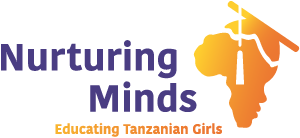Students Learn Sustainable and High Yield Planting Techniques
The NAFAKA Project Teaches Important Farming Skills
On Tuesday this week, a representative from USAID came to SEGA to continue the NAFAKA Project. The NAFAKA Project is a USAID program designed to “improve smallholder farmer productivity and profitability with maize and rice… and sustainably reduce poverty and food insecurity by increasing incomes for smallholder farmers.”
The aim of this session was to teach students about the best maize seed and how to increase production by taking into consideration factors such as climatic conditions and planting methods. The girls learned about proper plant spacing and how to use small plots of land efficiently. The students practiced these techniques on a small farming area at SEGA — with hopes for a successful and bountiful crop!
The lessons that the girls learned during this planting session with NAFAKA are another example of real world, applicable skills that the girls can put to use in their own lives to start a business, live sustainably and build a better life for themselves and their families.




